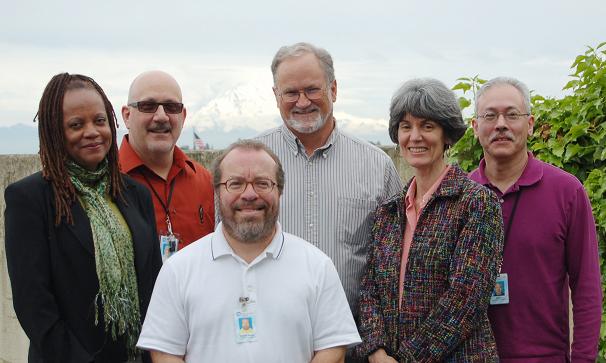Learning skills to care for a family member with dementia
“I had no idea how caregiving truly requires 24/7! The addition of caregiving adds a whole new dimension to anything I do,†says Edie Pelham. She’s caring for her sister who has dementia. Prior to contacting the Family Caregiver Support Program, Edie was either worrying about her sister or bringing her along to work each day. “I wouldn’t change it for anything, but having her at Memory Care & Wellness Services takes a bit of the pressure off for that brief time. It’s huge in helping me recharge.â€
Caring for a person with dementia is not something we are born knowing how to do. And our medical system is not particularly well-suited to helping individuals with dementia and their families in learning skills to manage behaviors and day-to-day care. Physicians, often the most trusted resource for families, have limited time and frequently don’t provide even simple referrals, such as to the Alzheimer’s Association where plenty of up-to-date information, educational resources, and connections with local support groups is available. Or, to the local Family Caregiver Support Program which offers a wide array of information, education and supportive services to assist in providing care at home.
Families often wait too long to make such calls. They delay reaching out for support until they are overwhelmed or exhausted. Once overwhelmed, it’s hard to know what to do first, what service might help, or how to muster the time and energy to “take care of yourself.â€Â Are you or someone you know feeling this way? If so, it can be beneficial to get assistance from a caregiving specialist to review your situation and determine action steps you could take to improve your situation now and in the future.
Here in Washington State, families can get this type of assistance by calling the Family Caregiver Support Program and asking about the Tailored Caregiver Assessment and Referral (TCARE®) system that incorporates a personal caregiver survey and assessment of a caregiver’s situation with consultation, if needed, around strategies and services to meet each caregiver’s unique needs.
Mr. S. is a great example of a caregiver who reached out and got the help he needed. He lives in northwest Washington, takes care of his wife with dementia and has medical concerns of his own. He was referred to the Family Caregiver Support Program over a year ago.
After going through the assessment process and discussing it with his caregiver specialist, he made decisions to talk with a caregiver counselor, to see his physician and get back to exercising, and to try out a specialized adult day service program. He recently discussed his experience with the program.
“While I have been aware for some time of feeling better and of having a higher energy level, the reports you sent me demonstrate these facts quite dramatically.  I am also aware of being extremely grateful for all of your efforts on our behalf as well as those of your staff. I know Mrs. S. feels the same way. If she were able to fully appreciate how much your efforts have helped me there would be no limit to how grateful she would be.â€
Pierce County is fortunate to have a variety of support options for families living with dementia, such as Alzheimer’s support groups, family caregiver counseling, dementia caregiver consultation and adult day service programs.
An innovative specialty service, new to the area is Skills2Care,â„¢ a proven in-home occupational therapy service for family caregivers and individuals with dementia. The program was designed to improve the well-being and skills of family caregivers, slow decline in daily functioning of persons with dementia and reduce challenging behaviors that can lead to nursing home placement. Services are provided in the home, with caregivers receiving 3-10 sessions within a 6-month period.
If you’re caring for a person with dementia, it’s critical to get information about the condition, to build or strengthen your support network, to keep yourself healthy and learn strategies and skills that can help you cope and provide the best possible care for your family member as things change over time. Find out now about any of the supports mentioned above that sound helpful.
Need help getting started? Don’t delay – call today. The local Family Caregiver Support Program can be reached through the Pierce County Aging and Disability Resource Center: (253) 798-4600 or 1-800-562-0332.
Lynne Korte Home and Community Services Division Aging and Disability Services Administration

